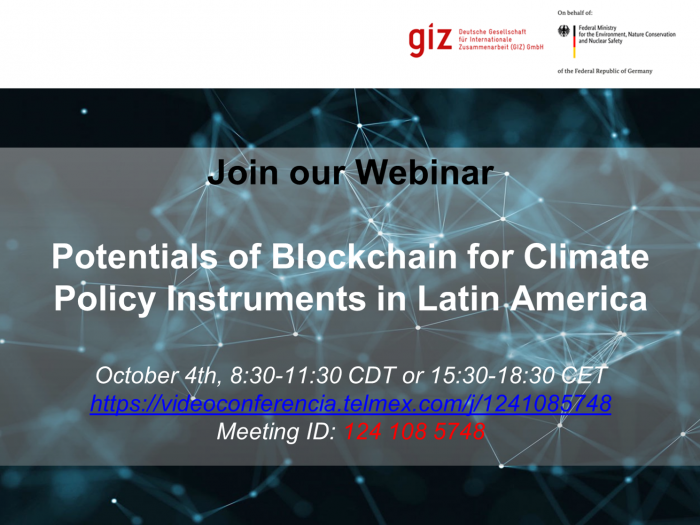The new Blockchain digital technology has aroused special interest as a tool that can help improve transparency in climate change policy instruments, including for monitoring, reporting and verification (MRV) systems, carbon markets, value chains and carbon footprints. Blockchain technology allows the exchange of information through a cryptographic protocol whose users are constantly updated and verified.
The IKI projects Preparation of an Emissions Trading System in Mexico (ETS) and the Mexican-German Climate Change Alliance and the GIZ offices in Brazil and Costa Rica, are collaborating to 1) explore Blockchain’s potential for climate policies and value chains and 2) inform and exchange knowledge with colleagues and their counterparts on the subject.
Within the framework of this collaboration, an introductory study on Blockchain and climate change will soon be published. In addition, three case studies are currently being conducted in Brazil, Costa Rica and Mexico:
- In Brazil, the potential for Blockchain technology for fishing and livestock sector value chains is being analyzed, taking into account climate aspects.
- The Costa Rica case study focuses on the potential of Blockchain to measure the carbon footprint in the coffee sector.
- In Mexico, the potential for Blockchain technology is being analyzed for carbon markets and for MRV systems for climate mitigation and financing.
Based on the case studies, a comparative summary will be developed to generate climate change policy instruments, taking into account the lessons learned from the case studies in each region.
To present the results, two webinars will be carried out: Webinars.
- The first will be on October 4 and will aim to introduce the topic and discuss the potential of Blockchain for generating climate policies in Latin America. For more information, consult here
- The second will be held in November and present the results of the case studies and a final summary. The date is to be confirmed.

